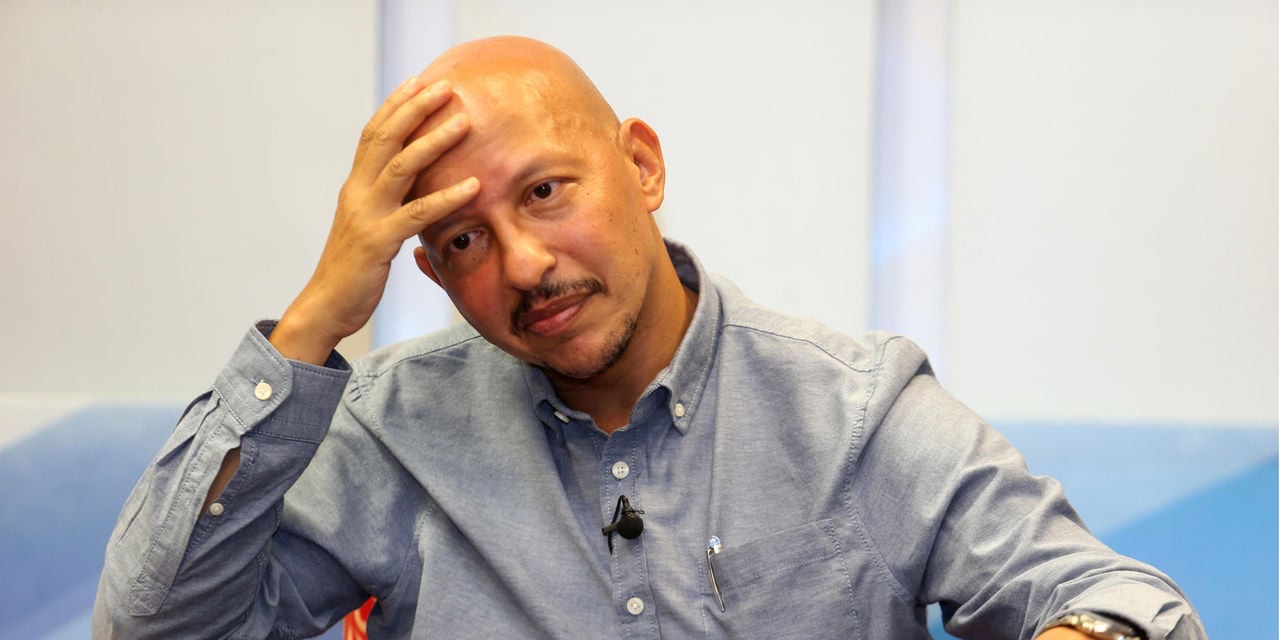Sports
Inside KRU Rot: The Toxic Boardroom Politics That Forced Sasha Mutai’s Resignation
He faced accusations of misappropriating Sh13.2 million through alleged illegal payments to vendors who failed to deliver services, charges that formed the backbone of the motion seeking his removal.

A web of corruption allegations, forged documents, and political vendetta brings down Kenya Rugby Union’s embattled chairman
The resignation of Kenya Rugby Union (KRU) Chairman Alexander ‘Sasha’ Mutai on Friday marked the dramatic climax of a toxic power struggle that has paralyzed Kenyan rugby for over two years.
In a tense Special General Meeting at the RFUEA Grounds, Mutai threw in the towel rather than face what appeared to be certain defeat in a looming no-confidence vote.
“Maybe I am not a good politician…maybe I don’t know how to cajole,” Mutai told the gathering, his voice heavy with resignation.
“I can read the mood in the room, and I can now follow a person whom I looked up to, Mwangi Muthee. I wish to tender my resignation as chairman.”
The reference to Muthee was telling.
The former KRU chairman had stepped down under similar circumstances in December 2014, citing boardroom wrangles and refusing to work with individuals he accused of corruption. History, it seemed, was repeating itself at Kenya rugby’s headquarters.
The Sh13.2 Million Scandal
At the heart of Mutai’s downfall lay allegations of financial impropriety that had dogged his 27-month tenure.
He faced accusations of misappropriating Sh13.2 million through alleged illegal payments to vendors who failed to deliver services, charges that formed the backbone of the motion seeking his removal.
The allegations, championed by KRU Secretary General Ray Olendo, painted a picture of systematic financial mismanagement.
The money was allegedly paid to vendors who never delivered services, raising serious questions about KRU’s procurement processes and oversight mechanisms.
Mutai vehemently denied the charges, maintaining his innocence throughout the ordeal. “Thank you, Mr. Secretary, for making me a rich man. I’ll see you in court,” he said defiantly during Friday’s meeting.
“My name has been dragged through the mud.”
A House Built on Forged Documents
The corruption allegations were just the tip of the iceberg in what investigators describe as a systemic breakdown of governance at KRU.
Mutai’s camp alleged that the very board seeking to remove him was itself illegitimate, claiming that three members had been elected using forged Credit Reference Bureau (CRB) certificates.
The forgery scandal centered on Olendo himself, who had been suspended from the board on August 4, 2023, for allegedly presenting fraudulent documentation.
However, in a twist that epitomized KRU’s legal quagmire, the Sports Disputes Tribunal later ruled on March 5, 2024, that his suspension was illegal and declared it null and void.
Though he was initially suspended over the matter, he later won a legal battle at the Sports Disputes Tribunal, which ruled his suspension illegal, effectively allowing him to return and spearhead the campaign against Mutai.
The Politics of Personal Vendetta
What emerged from months of court battles and public spats was a picture of KRU leadership consumed by personal vendettas rather than rugby development.
Mutai found himself at loggerheads not only with Olendo but also with Vice Chairman Moses Ndale, with the parties trading accusations and dragging each other to court over integrity issues.
In a typical boardroom tussle, members had placed Mutai at the centre of allegations relating to misappropriation of the board’s funds, while Mutai accused his detractors of orchestrating a smear campaign designed to destroy his reputation.
The personal nature of the conflict became evident when multiple rugby clubs filed separate motions against various board members.
Kisumu and Bungoma Rugby Clubs accused Mutai of lacking leadership and transparency, while Mwamba Rugby Club chairman Jason Braganza filed motions targeting Ndale, treasurer Joshua Aroni, and director John Kilonzo, all accused of overstaying their eight-year term limits.
A Pattern of Failed Leadership
Friday’s resignation followed a familiar script that has plagued KRU for over a decade.
The union has become synonymous with leadership instability, with chairmen regularly falling victim to boardroom coups and corruption scandals.
Mutai’s reference to Muthee highlighted this troubling pattern of promising leaders being consumed by the very institution they sought to reform.
The irony was not lost on observers that Olendo, who led the charge against Mutai, had himself been at the center of forgery allegations.
Olendo faced allegations of presenting a forged Credit Reference Bureau document during the March 2023 elections, raising questions about the moral authority to lead anti-corruption crusades.
Legal Battles and Court Interventions
Throughout his tenure, Mutai’s survival had depended on favorable court rulings.
He had successfully weathered two no-confidence motions at the March 24 Annual General Meeting after the Sports Disputes Tribunal intervened and halted the process, ordering arbitration instead.
When a faction of board members led by Ndale and Olendo attempted to remove him on March 6, Mutai again sought legal redress.
The Sports Disputes Tribunal barred the board from removing him until the case was heard, providing temporary reprieve.
However, Friday’s Special General Meeting proved to be different.
Reports indicate that members were due to present a vote of no confidence against him, prompting his resignation to avoid an undignified ouster.
Faced with what appeared to be insurmountable opposition, Mutai chose to leave on his own terms rather than face the humiliation of removal.
The Cost to Kenyan Rugby
The prolonged leadership crisis has taken a heavy toll on Kenyan rugby.
While board members engaged in endless litigation and public spats, the sport struggled with funding challenges, poor international performances, and declining grassroots participation.
The Kenya Sevens team, once a powerhouse on the world circuit, has struggled to reclaim its former glory amid the administrative chaos.
Development programs have suffered as resources were diverted to legal battles, and the union’s credibility with sponsors and international partners has been severely damaged.
What Lies Ahead
With Mutai’s resignation, KRU faces yet another transition period that could further destabilize the sport.
The union must now navigate the process of selecting new leadership while addressing the underlying governance issues that have plagued it for years.
The challenge will be finding leaders capable of rising above personal interests and political maneuvering to focus on rugby development.
The sport’s stakeholders are demanding comprehensive reforms to prevent a repeat of the toxic dynamics that have characterized recent years.
As Mutai prepares to follow through on his threat to take his accusers to court to clear his name, KRU must grapple with the reality that its problems run deeper than any single individual.
The rot, as many observers note, is systemic and will require more than cosmetic changes to address.
The resignation of Sasha Mutai may have closed one chapter in KRU’s troubled recent history, but the fundamental question remains, can Kenya’s rugby governing body finally break free from the cycle of corruption, cronyism, and conflict that has held the sport hostage for far too long?
For now, as the dust settles on Friday’s dramatic events, one thing is clear – Kenya rugby deserves better than the toxic politics that forced another promising leader to walk away from a job that should have been about developing the sport, not surviving boardroom warfare.
Kenya Insights allows guest blogging, if you want to be published on Kenya’s most authoritative and accurate blog, have an expose, news TIPS, story angles, human interest stories, drop us an email on [email protected] or via Telegram
-

 Grapevine1 week ago
Grapevine1 week agoAlleged Male Lover Claims His Life Is in Danger, Leaks Screenshots and Private Videos Linking SportPesa CEO Ronald Karauri
-

 Lifestyle2 weeks ago
Lifestyle2 weeks agoThe General’s Fall: From Barracks To Bankruptcy As Illness Ravages Karangi’s Memory And Empire
-

 Grapevine4 days ago
Grapevine4 days agoRussian Man’s Secret Sex Recordings Ignite Fury as Questions Mount Over Consent and Easy Pick-Ups in Nairobi
-

 Investigations2 weeks ago
Investigations2 weeks agoEpstein Files: Sultan bin Sulayem Bragged on His Closeness to President Uhuru Then His Firm DP World Controversially Won Port Construction in Kenya, Tanzania
-

 Business2 weeks ago
Business2 weeks agoKRA Can Now Tax Unexplained Bank Deposits
-

 Investigations1 week ago
Investigations1 week agoEpstein’s Girlfriend Ghislaine Maxwell Frequently Visited Kenya As Files Reveal Local Secret Links With The Underage Sex Trafficking Ring
-

 News1 week ago
News1 week agoState Agency Exposes Five Top Names Linked To Poor Building Approvals In Nairobi, Recommends Dismissal After City Hall Probe
-

 Investigations1 day ago
Investigations1 day agoMulti-Million Dollar Fraud: Three Kenyans Face US Extradition in Massive Cybercrime Conspiracy


















